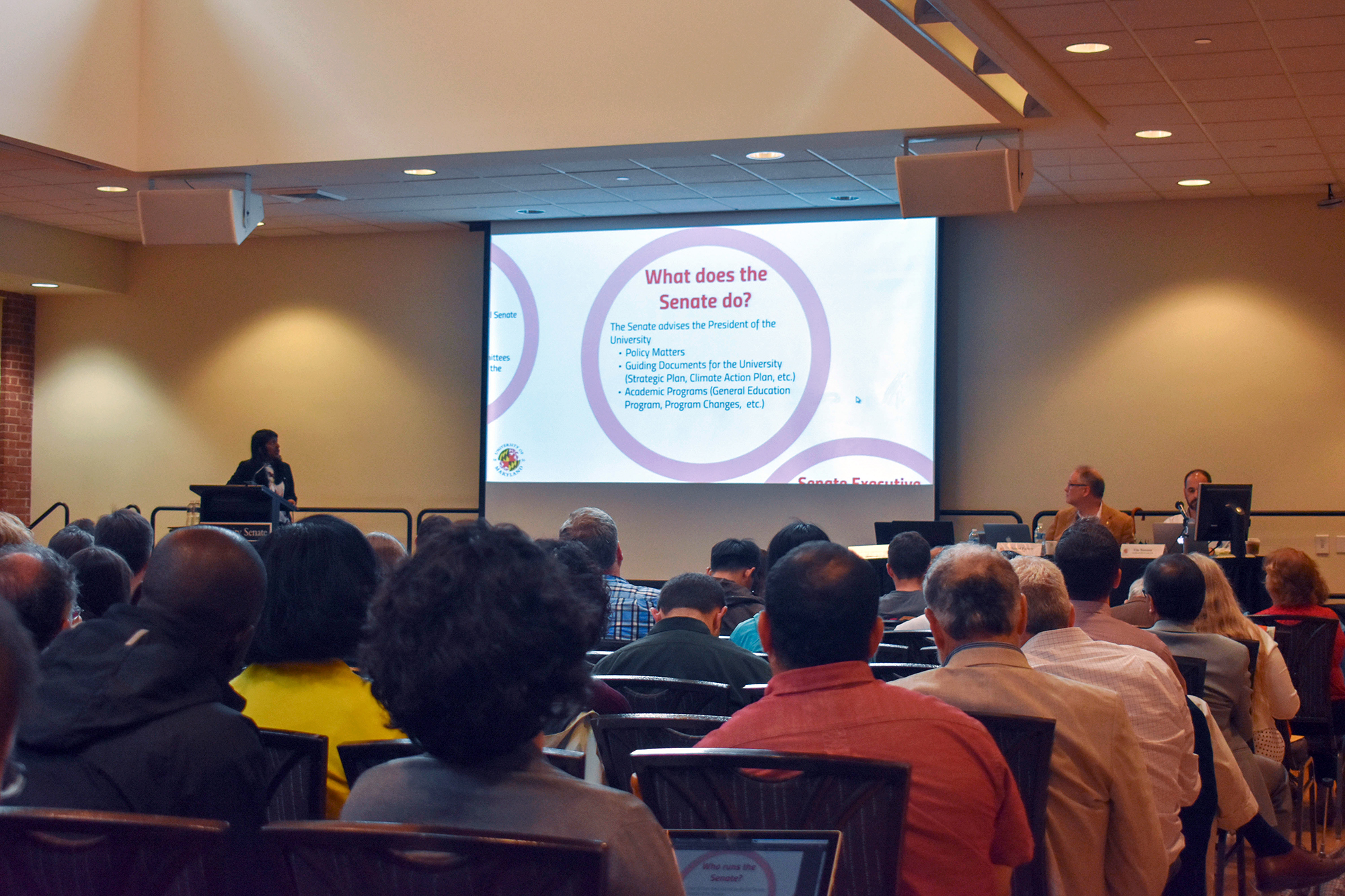During its first meeting of the academic year Wednesday, the University of Maryland Senate voted on the student social media privacy policy and discussed creating three new certificates in the telecommunications master’s program.
The current student social media privacy policy, initially approved on an interim basis by University President Wallace Loh on Oct. 25, 2016, was reviewed. The senate voted 102 to 5, with eight abstentions, in favor of implementing the current student social media policy in full effect. The legislation now awaits a decision from Loh.
The policy protects students from being required to share social media access and usernames with university employees. Students are protected from any disciplinary action by university employees for refusing to provide this information. The policy also states employees cannot require students to “follow” or “friend” them.
However, employees may require students to provide access to their social media account for an academic- or career-based activity. This is only if the student has an option to complete the activity by using an existing personal account or by making a generic account and if the student is not asked to provide security access, according to the policy.
[Read more: Less than half of student senators show up to most University Senate meetings]
University employees are allowed to access social media account information voluntarily provided, as well as any publicly accessible information about students’ social media accounts, the policy states.
Saisriram Sribhashyam, a public policy graduate student, felt the proposal lacked clarification on its grievance policy, which states student complaints should be referred to a unit administrator.
“What if the faculty has a different grievance?” Sribhashyam said. “I wanted it to be more elaborate.”
Sribhashyam added that the policy should have included a complete procedure on how to report any issues. He is also concerned about the difficulty in getting in touch with the unit administrator, as they might have other issues to work on.
The senate also discussed establishing three 12-credit, post-baccalaureate certificates in computing systems, wireless communications and networking/software development. These certificate programs will be available to students in the telecommunications master’s program and can be earned by taking a few electives in addition to their master’s degree requirements.
[Read more: UMD Senate votes to mandate sexual assault prevention training for new students]
The certificate in computing systems will focus on designing, creating, testing and configuring technology that are embedded in computer systems, such as smart phones and tablets, said Dylan Roby, Programs, Curricula and Courses Committee chair. The certificate in networking and software development focuses on learning skills and applying emerging networking softwares and technology, Roby added, and the wireless communications certificate aims to strengthen skills needed to configure, maintain and troubleshoot wireless networks.
“Current trends in the industry indicate a growing need for engineers and technologists with specialized skills in these three content areas,” Roby said.
The legislation to establish the computing systems and the networking and software development certificates was approved by a vote of 114 to 1, with six abstentions, while the wireless communications certificate was approved 112 to 1, with seven abstentions. The bills will move to Loh for approval or veto, then to the USM chancellor, Robert Caret, and lastly to the Maryland Higher Education Commission.
Other pieces of legislation discussed at the meeting include the revisions to the College of Arts & Humanities Plan of Organization, which was approved with a vote of 112 to 0, with eight abstentions, and the professional track faculty merit pay policy, which was approved with a vote of 109 to 3, with seven abstentions. Both moves will come to Loh for his approval or veto.



